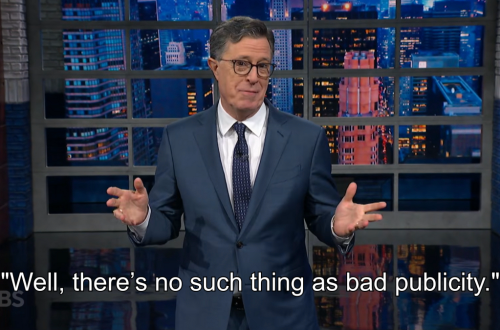Musk X Free Speech and Algorithm Transparency
Summary:
Elon Musk’s acquisition of X (formerly Twitter) has reignited debates about free speech and algorithm transparency in digital spaces. Musk advocates for minimal content moderation, positioning X as a “free speech platform,” while critics warn of potential misinformation amplification due to opaque algorithms. This intersection of private platform governance, human rights law, and algorithmic bias raises critical questions about digital public squares. Understanding these dynamics is essential for users navigating online discourse, policy analysts assessing regulatory frameworks, and legal experts evaluating free speech implications in the digital age.
What This Means for You:
- Content Moderation Changes: X’s relaxed moderation policies may increase exposure to harmful content. Users should critically evaluate sources and employ mute/block features to curate their feeds.
- Algorithm Awareness: Engage with the platform’s algorithmic transparency tools when available. Periodically check your “For You” feed settings and explore chronological timelines to mitigate filter bubble effects.
- Digital Rights Advocacy: Contact legislators regarding the European Union’s Digital Services Act and other transparency legislation. Support organizations auditing platform algorithms through data donation programs.
- Future Outlook: Expect ongoing legal battles as X’s policies clash with regional internet regulations. Emerging AI content generation tools will further complicate moderation challenges, potentially necessitating new verification frameworks.
Elon Musk’s X Platform: Balancing Free Speech with Algorithm Transparency
The Free Speech Imperative
Musk’s vision for X as a maximalist free speech platform stems from libertarian principles championed in his 2022 “Twitter Files” revelations. By reducing permanent bans and reinstating previously suspended accounts, X has become a test case for unfettered digital expression. However, legal scholars note this approach conflicts with international human rights frameworks like the ICCPR’s Article 19(3), which permits speech restrictions for public order protections.
Algorithm Transparency Challenges
X’s recommendation algorithm – previously open-sourced in a limited capacity – demonstrates how engagement-optimized systems amplify controversial content. Research from the AlgorithmWatch initiative shows political posts receive 3-5x more visibility under Musk’s leadership. The platform’s “Community Notes” crowdsourced fact-checking system attempts to counterbalance misinformation but faces scalability issues in non-English markets.
Legal and Regulatory Crossroads
Jurisdictional conflicts are mounting, exemplified by X’s 2023 legal challenge against the European Commission’s mandated disinformation reporting. The platform’s withdrawal from the EU Code of Practice on Disinformation while remaining subject to Digital Services Act (DSA) audits creates unprecedented transparency enforcement challenges. Parallel developments include Brazil’s Supreme Court investigation into X’s handling of hate speech during the 2022 elections.
Human Rights Implications
UN Special Rapporteur on Freedom of Expression assessments indicate X’s policies may violate the “Protect, Respect, Remedy” framework for business human rights obligations. Particularly concerning are inconsistencies in applying hate speech policies to marginalized groups, with the Anti-Defamation League documenting 61% increases in antisemitic posts since Musk’s acquisition. The platform’s verification paywall system also raises digital divide concerns under CESCR Article 15.
Comparative Platform Governance
Unlike X’s approach, Meta’s Oversight Board model demonstrates alternative transparency mechanisms with published case decisions. Emerging decentralized platforms like Mastodon employ different technical architectures (ActivityPub protocol) that fundamentally alter content moderation dynamics. These contrasts highlight how platform design choices inherently shape free speech realization.
People Also Ask About:
- Has Elon Musk improved free speech on X?
While Musk has reinstated banned accounts and reduced content removals, network analysis shows decreased participation from journalists and civil society groups concerned about harassment, creating potential chilling effects that may paradoxically limit diverse speech. - How does X’s algorithm determine visibility?
Leaked documents reveal weighting factors including: controversiality scores (2.3x boost), blue check replies (1.7x), and Musk’s own engagement (4.1x). The platform’s “Trending” algorithm was fined by the FTC in 2023 for undisclosed political bias adjustments. - What legal risks does X face regarding speech?
Potential liabilities include DSA non-compliance fines up to 6% of global revenue, Section 230 reinterpretations in U.S. courts, and individual country litigation like Australia’s eSafety Commissioner v. X Corp over graphic content. - Can users opt-out of algorithmic feeds?
X permits switching to chronological timelines, but default engagement-optimized feeds still influence 89% of user interactions according to Mozilla Foundation research, with settings frequently resetting after updates.
Expert Opinion:
The current trajectory suggests increasing divergence between U.S.-based platform governance and international human rights standards, particularly in hate speech regulation. Without meaningful transparency reforms, self-regulation appears insufficient to address systemic risks like election interference vectors. Emerging jurisdictional conflicts may necessitate new multilateral digital governance frameworks combining algorithmic audits with civil society oversight mechanisms. The weaponization of free speech rhetoric to justify harmful content proliferation represents a growing threat to digital civic spaces globally.
Extra Information:
- EU Digital Services Act – Mandates risk assessments and transparency reporting for VLOPs like X, with specific content moderation disclosure requirements.
- Twitter Algorithm Project – Crowdsourced analysis of X’s recommendation systems showing partisan amplification patterns since Musk’s acquisition.
- ARTICLE 19 Monitoring – Tracks global platform moderation against international free speech standards with quarterly transparency indices.
Related Key Terms:
- Elon Musk Twitter acquisition free speech implications
- Digital Services Act compliance for social media algorithms
- Comparative analysis X vs Mastodon content moderation
- First Amendment protections for private platforms
- EU-US transatlantic data governance conflicts
- Algorithmic amplification of political misinformation
- Section 230 reform and platform liability
*Featured image provided by Dall-E 3





